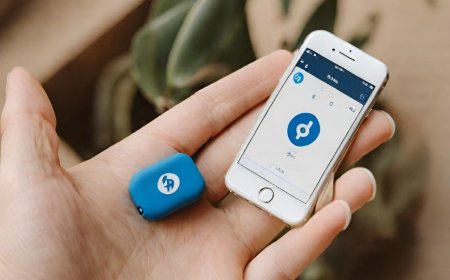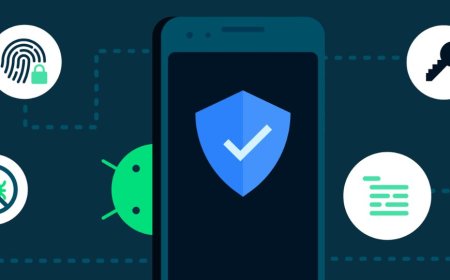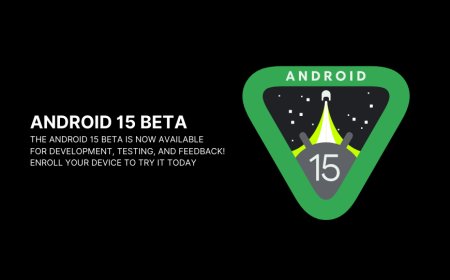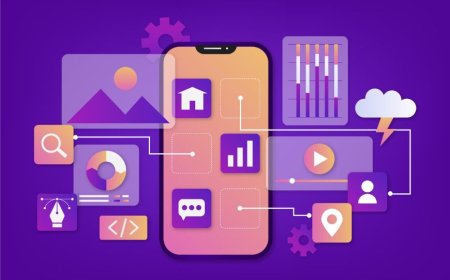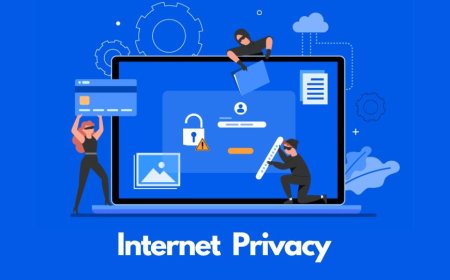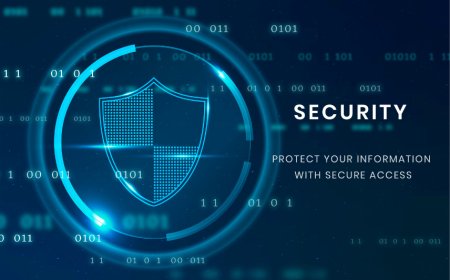Internet Privacy: Tools and Techniques to Stay Safe Online
Conquering the internet? This guide unlocks the top tools and techniques to shield your privacy online. Stay safe and in control!
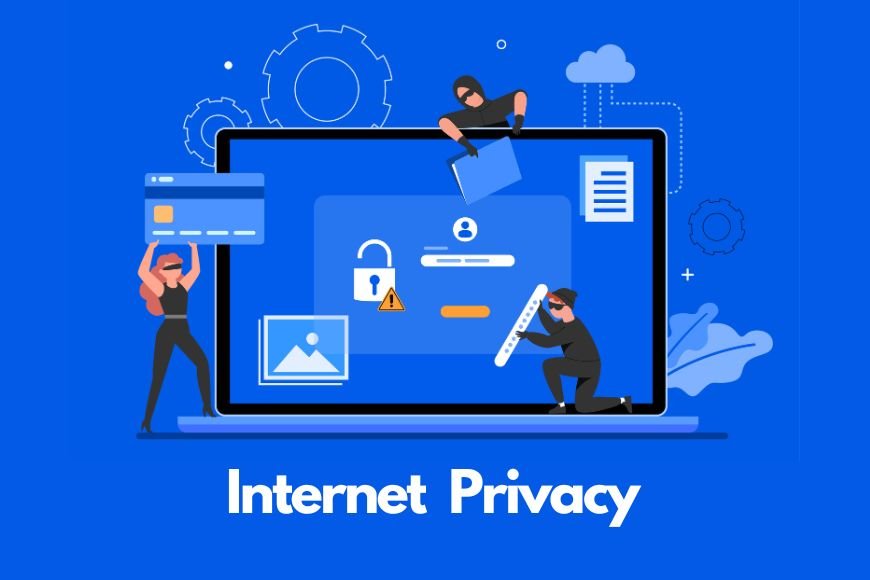
Have you ever felt a shiver down your spine when you see an ad for a product you just casually mentioned to a friend online? Or maybe you've gotten that unsettling feeling of being watched, with targeted content appearing across every platform you visit. In today's digital age, where our every click and search seems to be documented, protecting our online privacy is more crucial than ever.
This blog serves as your guide to navigating the often-murky waters of internet privacy. We'll explore what it means, the potential risks of neglecting it, and most importantly, equip you with the tools and techniques to stay safe online.
What is Internet Privacy?
Simply put, internet privacy refers to your right to control the personal information you share online and who has access to it. This includes data like your browsing history, location, search queries, and even the content you post on social media. Companies, websites, and even governments can collect this data for various purposes, some legitimate like targeted advertising, and others more concerning like identity theft or surveillance.
Why Should You Care About Online Privacy?
Imagine waking up one morning to find your bank account drained or your email flooded with suspicious messages – all because your online data fell into the wrong hands. Compromised internet privacy can lead to a range of serious problems, including:
-
Identity Theft: Hackers can use your personal information to impersonate you, opening lines of credit or making fraudulent purchases.
-
Targeted Scams: Phishing attacks become much more effective when scammers have access to your browsing habits and online activities.
-
Data Breaches: Companies are constantly under attack, and a data breach could expose your sensitive information to criminals.
-
Loss of Control: The more data companies gather on you, the less control you have over it, potentially impacting everything from insurance rates to job opportunities.
Building Your Online Fortress: Tools and Techniques
Now that we understand the importance of online privacy, let's delve into the practical steps you can take to safeguard your information.
A. Strong Passwords & Password Management
The first line of defense in any online security strategy is a strong password. Here's why:
-
Complexity is Key: Don't settle for easily guessed passwords like your birthday or pet's name. Instead, make use of a mix of numbers, symbols, and capital and lowercase letters.
-
Uniqueness Matters: Resist the urge to reuse the same password across different websites and accounts. A data breach on one platform could compromise your security everywhere else.
Creating and remembering unique, complex passwords can be daunting. But fear not, password managers come to the rescue! These handy applications securely store your passwords and can even generate strong, random ones for you. Popular options include 1Password and LastPass.
B. Secure Browsing Habits
The way you navigate the internet can significantly impact your privacy. Here are some tips for secure browsing:
-
Privacy-Focused Search Engines: Ditch the Googles and Bings! Consider using search engines like DuckDuckGo which prioritize user privacy and don't track your searches.
-
Incognito/Private Browsing: Friend or Foe? While Incognito/Private browsing mode can prevent your browsing history from being saved locally, it doesn't make you anonymous online. Your activity can still be tracked by your internet service provider (ISP) or websites you visit.
-
Taming the Tracking Beasts: Browser extensions like Ghostery or Privacy Badger can help block trackers and scripts that monitor your online activity.
C. Securing Your Devices and Network
Your devices and network are gateways to your online world. Here's how to fortify them:
-
Software Updates: Your Digital Armor: Those constant software update notifications can feel like nagging, but they're crucial to patch security vulnerabilities. Make sure to keep your operating system, web browser, and applications up-to-date.
-
The Firewall: Your Digital Gatekeeper: A firewall acts as a barrier between your device and the internet, filtering incoming and outgoing traffic. Most operating systems come with built-in firewalls, but consider upgrading to a more robust solution for enhanced protection.
-
Anti-Virus Software: Your Digital Shield: Anti-virus software protects your devices from malware, viruses, and other malicious programs. Choose a reputable anti-virus program and schedule regular scans.
-
Two-Factor Authentication (2FA): Double the Trouble for Hackers: 2FA adds an extra layer of security to your online accounts by requiring a second verification step, like a code sent to your phone, in addition to your password. Enable 2FA wherever possible.
-
Public Wi-Fi: A Necessary Evil? Public Wi-Fi networks can be convenient, but they're also breeding grounds for eavesdroppers. When on public Wi-Fi, avoid accessing sensitive information like bank accounts or online banking portals. If absolutely necessary, consider using a Virtual Private Network (VPN) which encrypts your internet traffic, making it unreadable to anyone snooping on the network. There are various free and paid VPN options available, but do your research to choose a reputable provider.
D. Social Media Privacy Settings: Don't Be an Open Book
Social media sites hold vast amounts of personal information. Here's how to manage your privacy on these platforms:
-
Privacy Checkup: Most social media platforms have built-in privacy settings that allow you to control who can see your profile information, posts, and activity. Take some time to explore these settings and adjust them to your comfort level.
-
Less is More: While sharing snippets of your life with friends and family can be fun, be mindful of the information you share publicly. Avoid posting sensitive details like your home address, phone number, or birthdate.
-
Think Before You Post: Remember, the internet has a long memory. Once you hit "post," it can be difficult, if not impossible, to completely erase that information.
Bonus Tips for Staying Safe Online
Here are some additional practices to keep your online presence secure:
-
Beware of Phishing Scams: Phishing emails and messages often try to trick you into clicking on malicious links or divulging personal information. Be cautious of emails or messages that urge you to take immediate action or seem too good to be true. Don't click on suspicious links or attachments, and verify the sender's identity before responding.
-
The Peril of Online Quizzes: Those seemingly harmless online quizzes that ask for your birthday, favorite pet's name, or first school might be more than just light entertainment. This information can be used for social engineering attacks or to answer security questions for your online accounts.
-
Privacy-Focused Alternatives: Consider using privacy-focused alternatives for popular services. For example, Signal is a secure messaging app that prioritizes user privacy over data collection.
Conclusion
The internet has revolutionized the way we connect, share information, and conduct business. But with this convenience comes the responsibility to protect our online privacy. By implementing the tools and techniques discussed in this blog, you can take control of your digital footprint and navigate the online world with greater confidence.
Remember, online privacy is an ongoing journey, not a one-time destination. Stay informed about evolving threats and security best practices. There are numerous resources available online to help you stay safe, so don't hesitate to do further research and explore additional tools and techniques that suit your specific needs.
What's Your Reaction?










